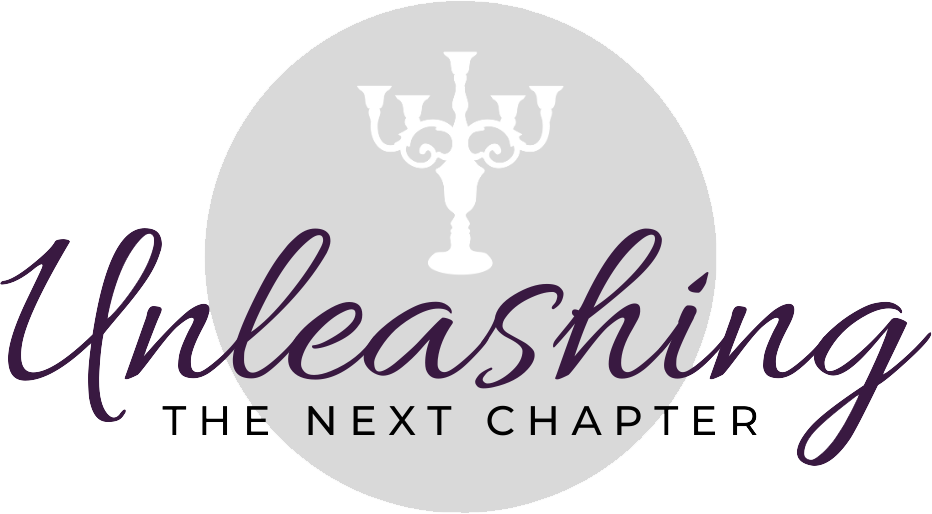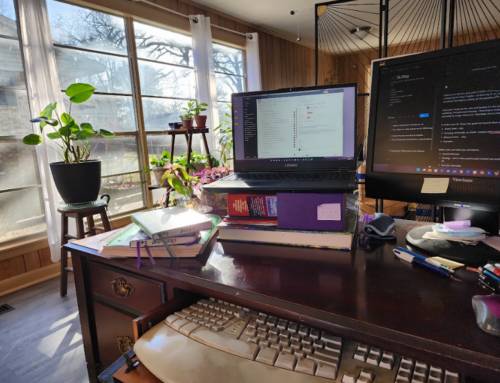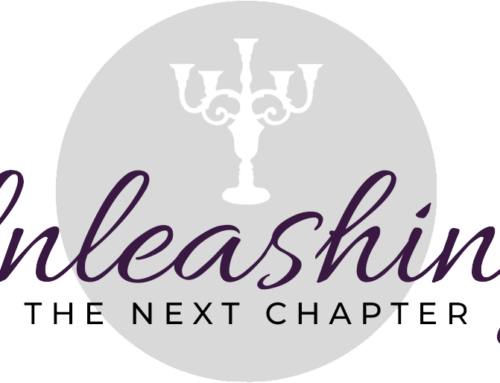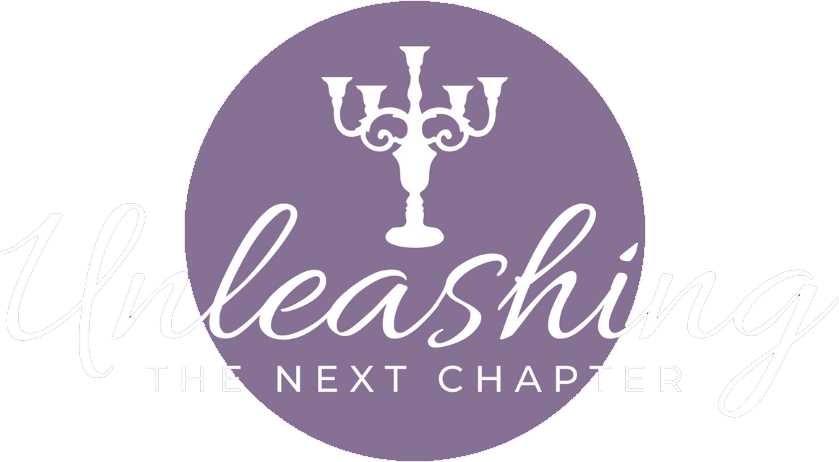We’ve all heard some version of the old adage,
“If you’re not changing, you’re dying.“
Since you last read a blog post from me, I’ve done a lot of changing. July and August was spent working on a Kickstarter campaign to raise funds for my book Why’s That Dog in Here? (it wasn’t successfully funded, but I learned so much from the process). I’m also coordinating social media for two nonprofit organizations. I have a son about to get married. My husband started a new job two hours away from home on July 23rd, so is only home weekends, and we’re getting ready to move. And I’ve done a lot of research on social media and have decided to change my focus.
Okay maybe not completely change my focus so much as narrow it. Perhaps writing, reading, advocacy, health, life, service dogs, communication, and research was too broad to grasp the attention of various social media algorithms and to build a loyal following. I’m sure you’ve seen the Facebook post going around about how Facebook only lets you see 25 people’s posts or only 25 people can see your post, and by clicking and sharing this post you can reset your Facebook to change that algorithm.  That, my friends, is fake news, as a quick look at Snopes will show. And the fact that so many of my very intelligent and connected friends have shared that post makes me realize how misunderstood social media is.
That, my friends, is fake news, as a quick look at Snopes will show. And the fact that so many of my very intelligent and connected friends have shared that post makes me realize how misunderstood social media is.
Another thing that happened in July that precipitated this change for me was when I asked my brother to share information about the Kickstarter campaign on his social media, his response was “sure, as long as it’s not depressing.” I was taken aback. How does one respond to that?
The conversation went on and he made the comment that another family member had observed that I only post negative things on my social media dealing with my health or challenges in life. The exact same week I had a situation where somebody in one of the nonprofits I volunteer with made the comment on her social media, referencing me, that “this is the woman who wants to help us with social media, but she’s always sick.” I was shocked.
I advocate for people with invisible disabilities, and strive to share my real experiences rather than just the good days, yet am pretty well known for finding the silver lining in any cloud. As the conversation with my brother continued, he encouraged me to audit all my social media and evaluate what I’m posting because maybe when I don’t feel good I don’t realize how negative it might sound. That was brilliant advice. I challenge everyone reading this to do a quick audit of their social media, what they post, and how much of a response it gets.
What I found was less than 20% of posts on my personal platforms had to do with my status as a migraineur or stroke survivor, and most of those were advocacy related, or in response to other people’s questions. But the interesting thing was those posts got the most reactions. By reactions I mean the emoticon buttons at the bottom of your Facebook post (👍❤🤣😢😮😠). They also got the most comments, be it “hope you feel better soon,” “I’m praying for you,” “let me know how I can help,” etc. Sweet comments from lovely friends and family who were really concerned about me.
The lesson that applies to everybody who uses Facebook, Twitter, Instagram, etc. is you will see more of what you react to and comment on, regardless of whether it’s real news, fake news, memes, updates and pictures from friends and loved ones, or whatever. If you wonder why all you see is negative news, consider what you are reacting to in your news feed. If all you are getting is political memes, consider what you are sharing and commenting on in your timeline. Your shares, your comments, and your reactions are the only three things that drive what you are seeing on Facebook and Twitter.
The mathematical computer code, or algorithm, itself is kept secret, but Facebook (who also owns Instagram), Twitter, and YouTube have been very open about their goals and how the algorithms work. Here’s Facebook’s quick video from August 2018 about how the algorithm is created. Facebook also has a little help icon next to the notification bell. If you click there and type “algorithm,” or any other topic you question, it will give you more info than you can read.
I knew this, but until the past few months, I had no idea the dramatic impact that the algorithm has on my life and writerly pursuits. As I was sharing my findings among friends and family, I learned that most people don’t realize how social media works, nor how to research items before sharing. This is now becoming my focus, as many other writers, entrepreneurs, and…basically anyone who uses social media needs to learn the basics of these very simple to use but complex platforms. My academic research revolved around communication, OK primarily Victorian era, but the fact is that all communication serves the same four purposes–to question, to inform, to understand, or to persuade. Communication hasn’t changed, but the speed and means have.
While working with the Kickstarter campaign regarding the service dog book, I created a YouTube channel. Did you know that Google is the world’s largest search engine, YouTube is the second largest search engine, and that YouTube is owned by Google? As I’m thinking about my social media strategy as a writer, I think the future will see me alternating between YouTube and blogging.
Over the last five years, my interest and skill has developed and grown in the area of social media and platform building for writers. Almost thirty years ago I started my career in marketing and advertising, where I also taught productivity techniques. I then moved on to academia, teaching English literature, composition, and rhetoric. In the last few years I’ve created and managed social media for three different nonprofits. When asked to do presentations for companies and writing groups, the most popular topics are those revolving around social media and productivity. It seems I have come full circle now.
“If you’re not changing you’re dying….” I’ll be changing in the last quarter of 2018 from major metropolitan city to small town living, from local face to face presentations and instruction to more long distance and virtual coaching. Although I still intend to advocate for those who can’t speak for themselves and to share my writerly journey, I intend to focus more on teaching writers and entrepreneurs how to be productive and intentional in their use of technology and social media.
Heraclitus, a Greek philosopher, has been quoted as saying,
“Change is the only constant in life.“
How are you changing? And more specifically, how is your use of technology changing the way you communicate?
If you found this post thought-provoking or helpful, make sure to like it, and to learn more about writing, platform building, and productivity remember to subscribe to this blog and the Unleashing newsletter.





I enjoy your post. I am a heart attack and stroke survivor and now I can say I’m a breast cancer survivor. I do my very best to live everyday to the fullest I don’t write a lot about myself personally on Facebook I like to share a lot of recipes.
I think you are amazing what you accomplish what you do I enjoy reading what you write and I enjoy the pictures keep it up whatever makes you happy do it
Thanks so much Jenifer! And congratulations on being a survivor!!
I think that’s what fascinates me the most… everyone has a story, everyone is going through something. I understand that not everybody is comfortable talking about it, but I think it’s important that somebody talks about it so we give each other a little more grace to get through the hard days. I’m passionate about so many things, that it’s hard to narrow it down into a focused niche.
Thank you for this valuable info. You’ve reminded me I have a lot to learn.
Let me know if you have specific questions. Always happy to help!
Thank you! I will.